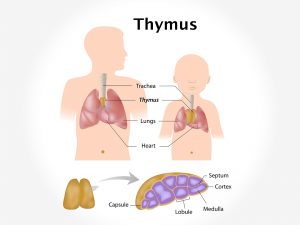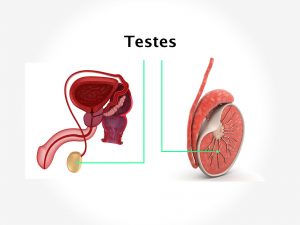Causes and risk factors
The cells undergo an abnormal and uncontrolled proliferation. Eventually, these clusters of cells lead to formation of a tumor or mass in the lining of the small intestine or its lumen. Depending upon the cells involved, the cancers are classified as adenosarcoma, carcinoid tumors, sarcomas, and lymphomas. What causes this abnormal growth is still a mystery. However, tedious research and study of various cases has laid down certain risk factors which can predispose one to cancer. Genetic factors head the list. Many cancers are caused due to certain abnormality or mutation in the genes which stimulate the cells to undergo an abnormal proliferation. Gardner syndrome, von Recklinghausen’s disease, and multiple endocrine neoplasias are the risk factors which can lead to development of cancer of small intestine. Certain inherited conditions like familial adenomatous polyposis, cystic fibrosis, etc., also trigger malignancy of small intestine. People with weak immune system and those suffering from Crohn’s disease, lymphedema, etc., increases the risk for developing cancer. High fat consumption, low-fiber diet, tobacco addiction and cigarette smoking, and alcohol consumption in excess are the worst predisposing factors. Obesity equally adds to it.
Clinical presentation:
Indolent growth of the abnormal cells in its initial stage does not pose any noticeable signs and symptoms in the body, hence the patient remains asymptomatic or most of the times. The tumor is accidentally detected while conducting other procedures or surgeries. Some people over a period of time can come up with other health issues. On most of the occasions, the patient usually comes up with vague symptoms like bodyache, fatigue, and tenderness all over the body. A noticeable change in weight is complained by the patient or is brought into notice by the known ones, while a few can come up with complaints of pain in abdomen, nausea, vomiting, alteration in the bowel habits or difficulty in passing stools or a complaint of palpable mass in the abdomen. The stools can be bloody or tarry. Metastasis can lead to various other symptoms pertaining to that system or organ. Often the patient can present with signs and symptoms of intestinal obstruction.
Investigations:
Taking into consideration the complaints mentioned by the patient, a physical examination of the patient is carried out. Accordingly, certain sets of investigations are advised. Ultrasonography of the abdomen and pelvis, barium x-ray, endoscopy, or CT scan of abdomen and pelvis is advised. If any abnormal growth or mass is detected, a biopsy is done which will help to differentiate between the benign and neoplastic cells. If the cancerous growth is confirmed, certain other sets of investigations like routine blood test and blood markers for cancer are done. A complete scan (PET scan) is the most essential investigative tool mandatorily advised in cancerous conditions.
Treatment:
Staging of cancer, (i.e., advancement and spread of pathology) is the essential tool in formulating the treatment plan. If any abnormal mass is detected, surgical excision of the tumor along with removal of the cancerous part of small intestine is done. Radiation treatment along with administration of chemotherapeutic agents is done in advanced cases along with certain palliative procedures that are carried out.
Facts and figures:
It is a rare type of cancer accounting for only 2% of gastrointestinal cancers.






























